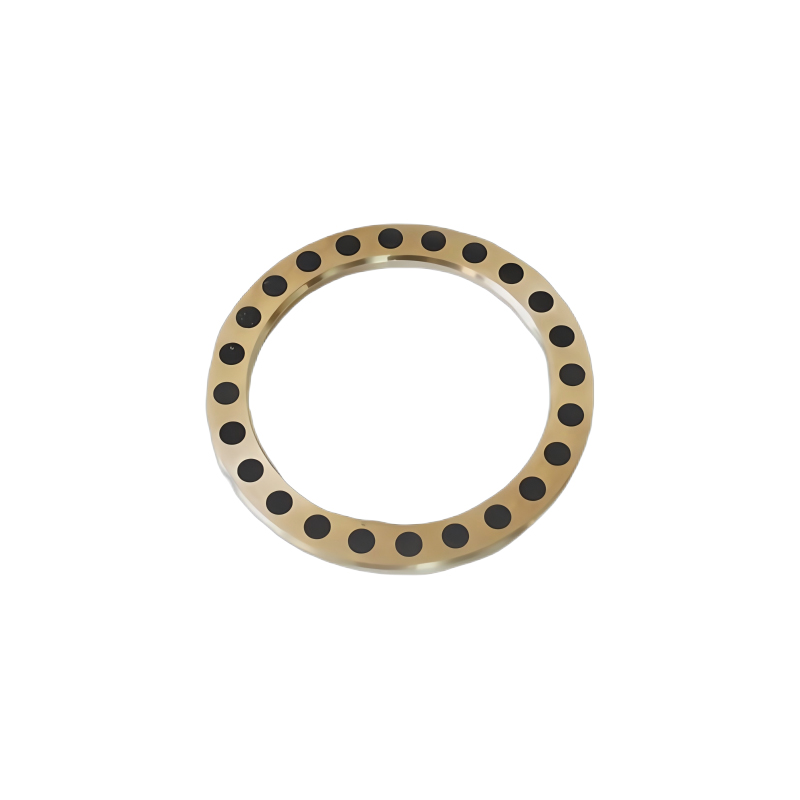Self-lubricating bearings have emerged as a game-changer for industries such as automotive and heavy machinery, offering a multitude of advantages that lead to significant cost reductions. From eliminating the need for external lubrication to extending the lifespan of machinery components, these bearings provide an efficient solution for enhancing operational efficiency and minimizing maintenance efforts.
1. Elimination of External Lubrication
One of the primary ways self-lubricating bearings cut costs is by removing the need for regular lubrication with oil or grease. In traditional systems, frequent lubrication is necessary to keep parts moving smoothly and prevent wear. However, self-lubricating bearings are made from materials that have built-in lubrication properties, releasing small amounts of lubricants during operation. This innovation reduces the need for costly lubricants and maintenance, and it helps avoid the time-consuming process of applying lubrication, which is particularly beneficial in hard-to-reach components.
2. Extended Lifespan and Durability
Self-lubricating bearings are engineered to withstand high levels of stress and operate with minimal friction. This leads to a longer service life compared to traditional bearings, which can wear out quickly under similar conditions. The reduced friction also minimizes heat generation, which further extends the lifespan of both the bearings and the machinery they are used in. As a result, industries experience fewer part replacements and equipment downtime, leading to cost savings in the long run.
3. Lower Maintenance Costs
Since self-lubricating bearings do not require constant attention, industries benefit from reduced maintenance costs. The elimination of routine lubrication tasks cuts down on labor expenses, while also minimizing the need for lubrication-related equipment such as pumps and reservoirs. Additionally, reduced maintenance means fewer instances of machinery shutdown for repairs or part replacements, further enhancing productivity and lowering operational costs.
4. Increased Machine Uptime
In industries where time is money, the ability to keep machines running without frequent interruptions is crucial. Self-lubricating bearings contribute to increased machine uptime by reducing the chances of unexpected breakdowns. Traditional bearings that rely on external lubrication can seize or fail if they run out of lubricant, leading to costly downtime. By contrast, self-lubricating bearings are designed to operate continuously without the risk of failure due to lubrication loss, ensuring that production lines stay operational for longer periods.

5. Environmental and Regulatory Benefits
By eliminating the need for oil or grease, self-lubricating bearings help industries reduce their environmental footprint. Lubricants can pose disposal challenges and environmental hazards, requiring careful handling and compliance with regulations. Using self-lubricating bearings reduces waste and the potential environmental risks associated with lubricant disposal, which can also translate into cost savings in regulatory compliance and waste management efforts.
6. Enhanced Energy Efficiency
Self-lubricating bearings are known for their smooth operation, which reduces friction between moving parts. This reduction in friction leads to lower energy consumption in machinery, making operations more energy-efficient. Over time, these savings in energy usage can result in reduced operational costs, especially in industries where heavy machinery is used extensively.
Self-lubricating bearings provide a comprehensive solution for industries looking to streamline operations and reduce costs. By eliminating the need for constant lubrication, reducing wear and tear, and improving machine uptime, these bearings offer significant advantages in terms of both performance and cost-efficiency. For sectors like automotive and heavy machinery, where reliability and durability are paramount, self-lubricating bearings are a smart investment that pays off through reduced maintenance, extended equipment life, and overall operational savings.




 English
English Español
Español
















Contact Us